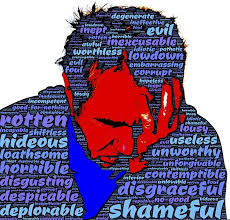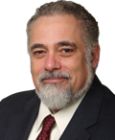Embarrassment
Shame: We've All Experienced It
How is shame different than guilt?
Posted September 23, 2019

In this blog, author Wesley Davidson relays her trajectory of losing a child to drug abuse. Her story is empirically based and is the yin of Dr. Shrand’s yang.
Unfortunately, Ms. Davidson’s story is played out all across the United States. In 2017, the year after Ms. Davidson’s son overdosed, over 70,000 U.S. citizens died similar deaths, according to the Centers for Disease Control. As Davidson fully knows, losing a child to drugs is every parent’s nightmare. It leaves the mourner with many issues.
Guest Post Written By Wesley Davidson
As the mother of a son who died from an opioid overdose, I had, and still have, guilt and shame. However, the modus operandi is different.
“In the case of guilt,” writes psychiatrist Jonathan L. Tobkes, M.D., co-author of When Your Child Is Gay: What You Need to Know ( Sterling: 2016), “we feel badly because we haven’t lived up to our standards or values, whereas with shame, we feel that we have not met societal or cultural expectations. Shame is a pervasive negative emotion about how we feel overall.”
How true! Let me count some of the ways that shame can permeate the mind and actions of the mother of an addict. The stigma of addiction can keep a family quiet about the internal struggles within their home. It’s a knee-jerk reaction to what is perceived as possible criticism from strangers, friends, even doctors. Your “dirty little secret” is a source of embarrassment.
For example, I hid the real truth about why my son dropped out of our local “Top-Ten” U.S. high school and, later, a boarding school. The truth is he was depressed, and probably started his habitual use of illicit drugs at that time. When asked why he was in a boarding school in Georgia, I blithely responded that “my husband has relatives in Georgia.”
My husband does have relatives in Georgia, but the “whole truth and nothing but the truth” was that he was in a lockdown therapeutic school for emotionally troubled kids. I was ashamed that I couldn’t control him and didn’t want to be judged as a bad parent who couldn’t control her eldest. I also didn’t want our family’s “dirty laundry” aired.
I continued to make excuses for him when he lived in California: “a geographical cure?” I inflated his short-lived jobs. My handsome son who modeled hair products for only a week was in demand for his dark, swarthy looks atypical of California. His Abercrombie & Fitch job where he quit after two days because he didn’t like folding sweaters became, in my storytelling, a possible career in retailing. I was embarrassed about his entitlement. His full-time job later, I believe, was scoring and selling drugs.
The shame and embarrassment were fueled by the few friends who were sworn to secrecy, as well as doctors who told me I was “co-dependent” and “enabling.” However, Robert Weiss, Ph.D., author of Prodependence: Moving Behind in that Codependency (Health Communications, 2018), believes a therapist should not label the parent of an addict.
A concerned loved one of a child with substance abuse disorder should feel welcome and not judged in a doctor’s office. “If a son had cancer, you wouldn’t call concern and love enabling,” stresses Dr. Weiss in his book.
How does a parent withhold and deny love because of addiction? Yet many of us parents vacillate between an ingrained parental need to protect our kids and the subsequent anger at the inability to control them once addicted.
I am still ashamed at my desperate efforts and illogical thinking that 28 days in rehab would “cure” my son. My son would counter, "You always throw money at a problem." Rehab after rehab, I was never given a “dual diagnosis,” but I persisted because if I didn’t, I would feel guilty about not trying to improve his lot, and my own.
In the end, my attempts made me feel worse and underappreciated by others, thus ashamed. If my friends knew, they would regard my son as if he were a “repeat felon” used to recidivism.
The shame of addiction, like a genogram, can be traced to the top government leaders, according to Ryan Hampton, a former heroin user, ex-White House staffer, and activist fighting to make pharmaceutical companies accountable for the opioid epidemic. Hampton tweeted that “the lack of funding (for long-term care) is directly linked to the shame surrounding addiction leaders. Leaders don’t want to support any efforts that might be seen as “enabling” the addict or making it easier for people to use illicit drugs.”
It is this stigma of addiction that makes parents and everyone else involved ashamed. It contributes to the fact that many parents perceive it’s a lifestyle that those with the disorder can turn on and off, that the parents can control, instead of the chronic brain disease it really is.
Shrink Think:
In our previous blog, Wesley talked about the guilt she felt in regard to her son. What is the difference between shame and guilt? I am sure the reader has some intuitive sense of that difference.
Guilt is when you feel you have done something wrong, and you take responsibility for that action. But shame. Shame takes guilt to another level. Shame is often thrust upon you through the eyes of someone else. I may see myself as guilty, but I feel shame when I think someone else sees me as having done something horrible, and as a result, have less value.
Human beings are social animals. We rely on being part of a group. We feel guilty if we have done something that takes advantage of another person: If we have offended someone, committed a crime. But shame is when someone else views us as more than guilty: of being morally decrepit. Shame is when our own guilt is magnified through the eyes of others. Wesley felt both: guilt because of her own sense of inadequacy in helping her son, and shame believing that other people saw her as an inadequate mother who, in some ways, was to blame for her son’s addiction.
Addiction is not a crime, but it can lead to them. And one of the biggest crimes is that so much of society, for so long, has turned its back on people with addiction. And this includes turning their backs on the families challenged by addiction. Wesley is talking about shame because so many people still see addiction as a moral issue. The addict is seen as a bad person, so where were their parents to guide them on the righteous path?
But addiction is not about morality; it is about mortality, simply the way the brain works. Shame is the experience a person feels because they perceive that others judge them as less than and broken, as inadequate, as less valuable. Shame is what pushes a parent, or the person challenged themselves, to stay hidden in the shadows of addiction, to fear coming out for help lest they are judged… and feel ashamed.
Hate the addiction. Help the addict. And help their families.
This is not enabling but helping a person to be able to begin managing the long, long road to recovery. The long, long road to rekindling their sense of value. For that sense of value is what the person with drugs and alcohol has given away.
I remind folks in recovery that if anyone asks them to “look at what you have lost by using drugs,” to tell them to go to hell. They did not lose anything: They gave it away. And they can take it back.
Blame is not the same as taking responsibility. And taking responsibility is one of the first steps in recovery. You are not powerless. You have nothing to be ashamed about.




